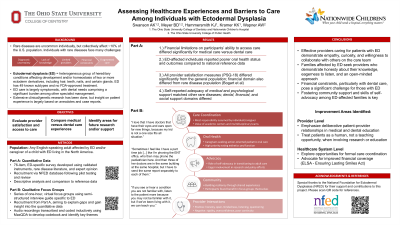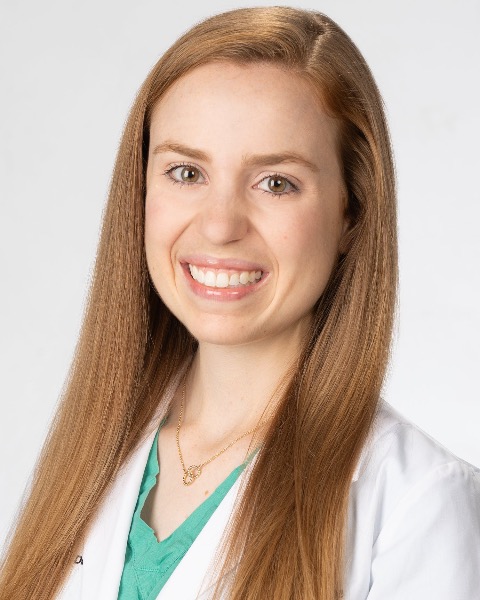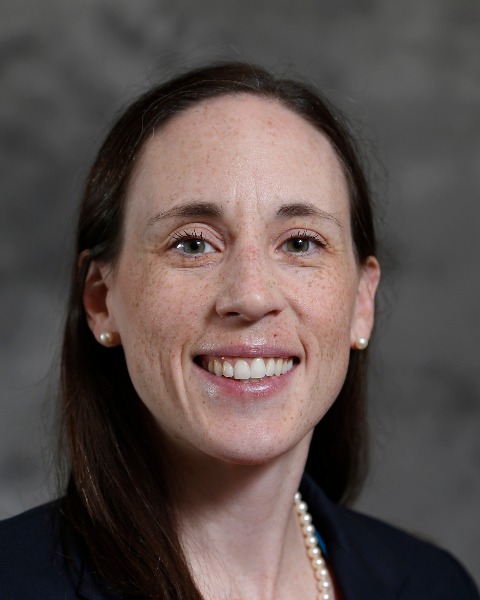Syndromes/Craniofacial Anomalies
199 - Assessing Healthcare Experiences and Barriers to Care Among Individuals with Ectodermal Dysplasia


Amanda K. Swanson, DDS (she/her/hers)
Pediatric Dental Resident
The Ohio State University/Nationwide Children's Hospital, Columbus, OH
The Ohio State University/Nationwide Children's Hospital
Columbus, Ohio, United States- BM
Beau Meyer, DDS, MPH
Associate Professor
The Ohio State University
Columbus, Ohio, United States 
Kim Hammersmith, DDS, MPH, MS
Program Director
The Ohio State University and Nationwide Children's Hospital
The Ohio State University and Nationwide Children's Hospital
Columbus, Ohio, United States
Presenting Author(s)
Research Mentor(s)
Program Director(s)
Purpose: To conduct a qualitative assessment of barriers and facilitators to medical and dental care among individuals and caregivers affected by ectodermal dysplasia (ED). A mixed-methods approach was employed using web-based questionnaires and focus groups.
Methods: A 76-item questionnaire was developed using a combination of validated instruments and expert opinion. Sections included diagnosis, insurance, oral health, and access. Descriptive statistics and bivariate methods were used to compare medical versus dental access to care and provider satisfaction. Focus groups were conducted using a semi-structured guide with caregivers of affected children and individuals with ED. Interview recordings were transcribed verbatim, coded, and analyzed inductively using MaxQDA software.
Results: A total of 174 questionnaire responses were received. Access to and satisfaction with dental care was lower than medical care. Subjects reported finances as the largest barrier to dental care. Eight focus groups were conducted. Most frequently cited frustrations included insurance delays or denials, dismissive provider attitudes, and fragmented coordination of care, all of which place a time-intensive burden on the affected individual or caregiver. Self-advocacy was common and necessary in accessing proper resources. Families valued the sense of community gained from support organizations and interactions with other affected individuals.
Conclusions: Effective providers demonstrate empathy, curiosity, and willingness to collaborate alongside their patients and other specialists on the care team. Families seek providers who demonstrate honesty, active listening, and open-mindedness to learn. Fostering skills of self-advocacy among families and encouraging deliberative patient-provider relationships in healthcare education hold promise for improving rare disease care.
Research supported by the National Foundation for Ectodermal Dysplasias (NFED) and with funding through a Health Resources and Services Administration, Department of Health and Human Services, Postdoctoral Training Grant in Pediatric Dentistry, D8837551.

.jpg)